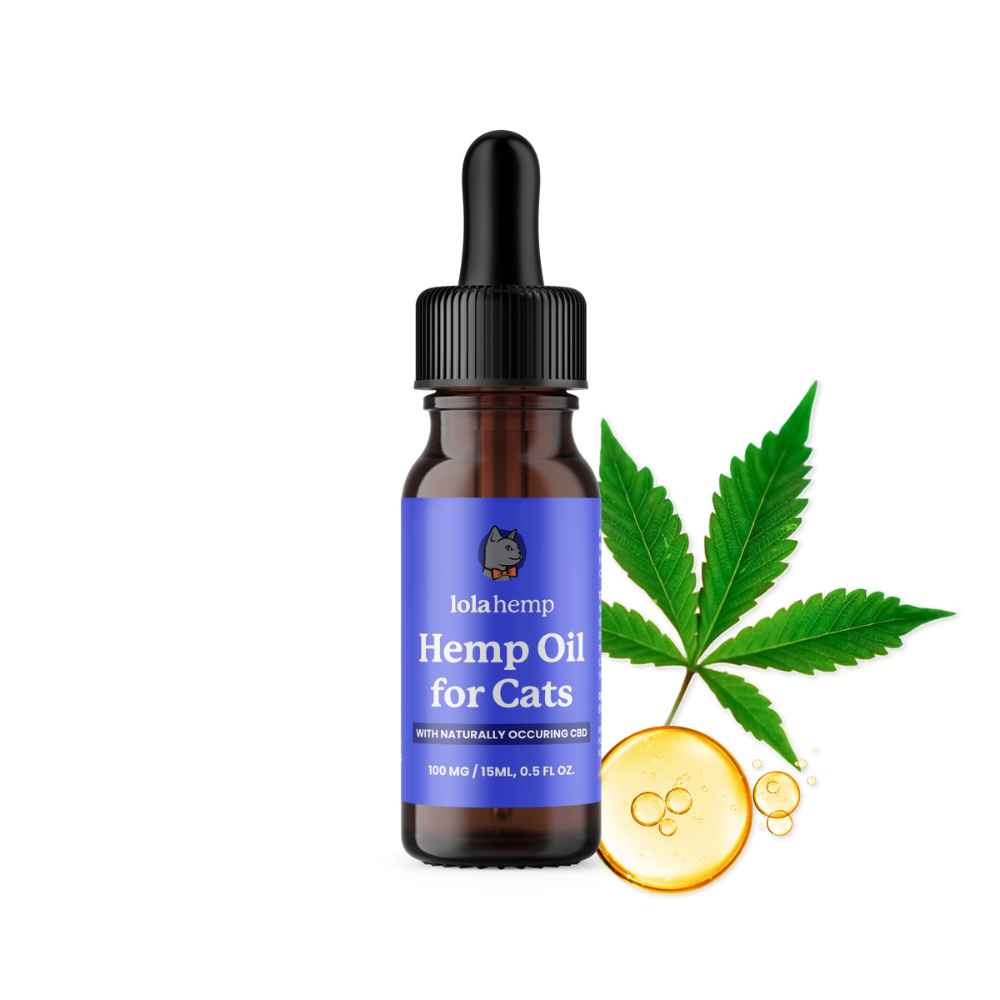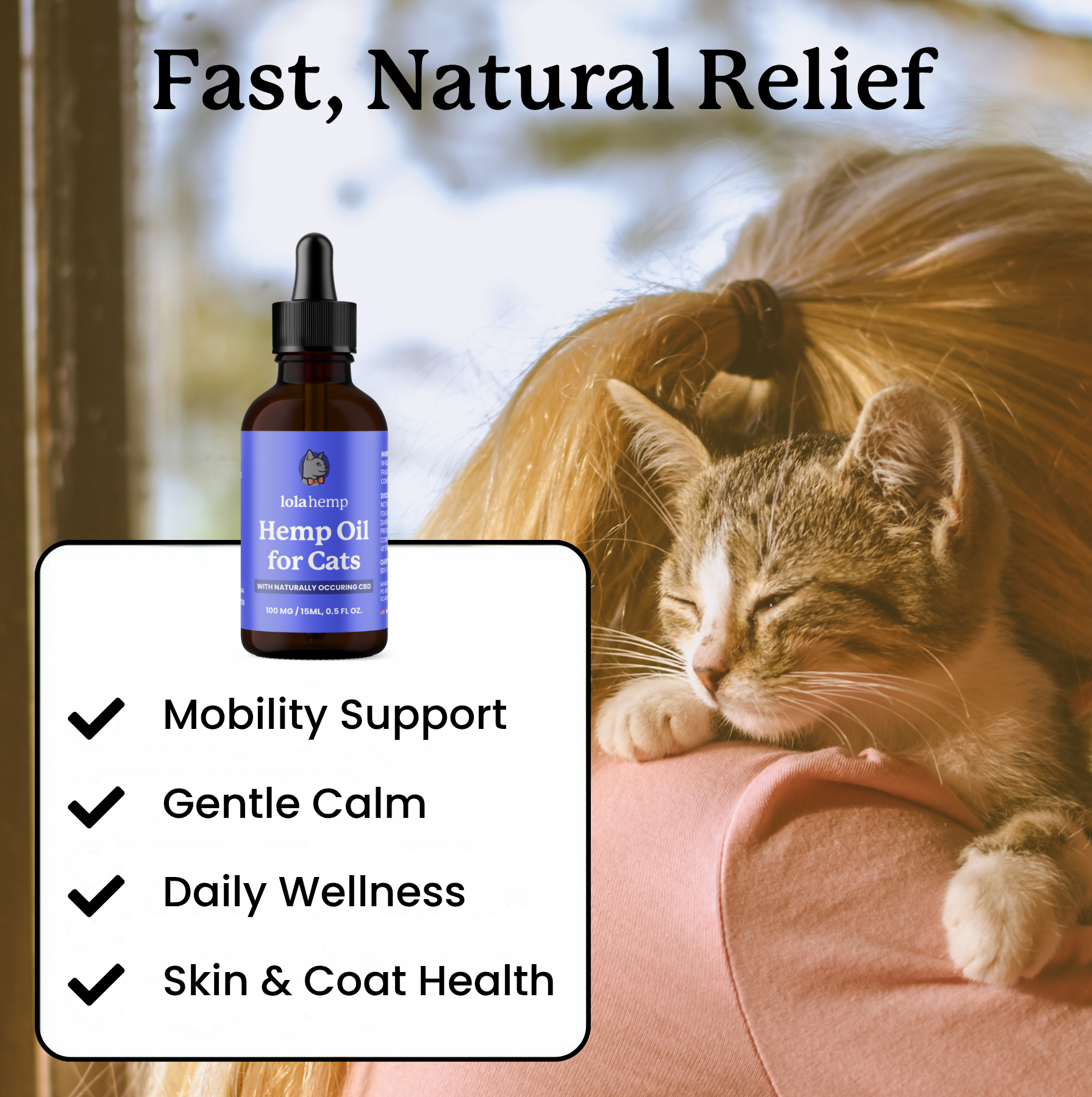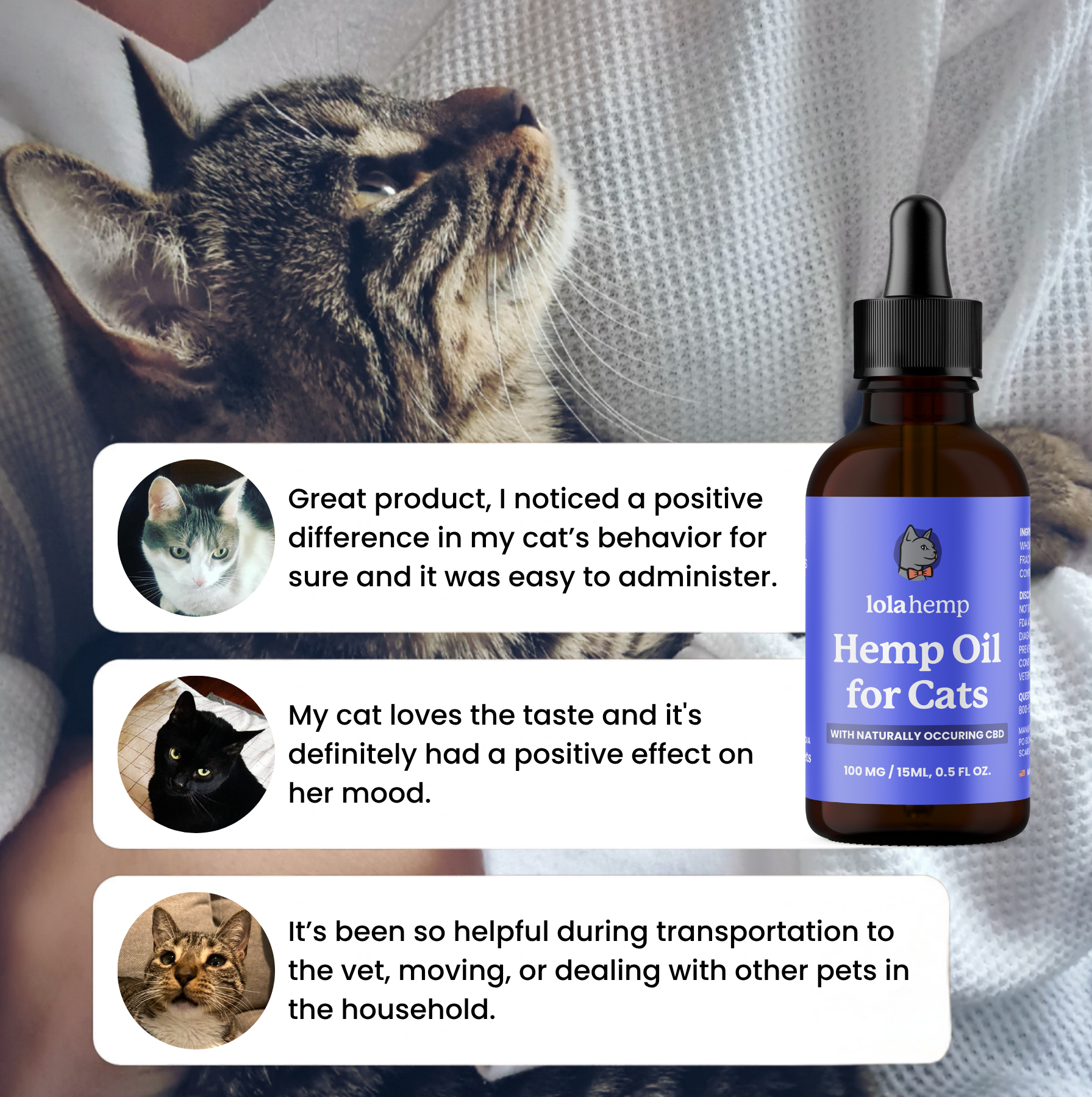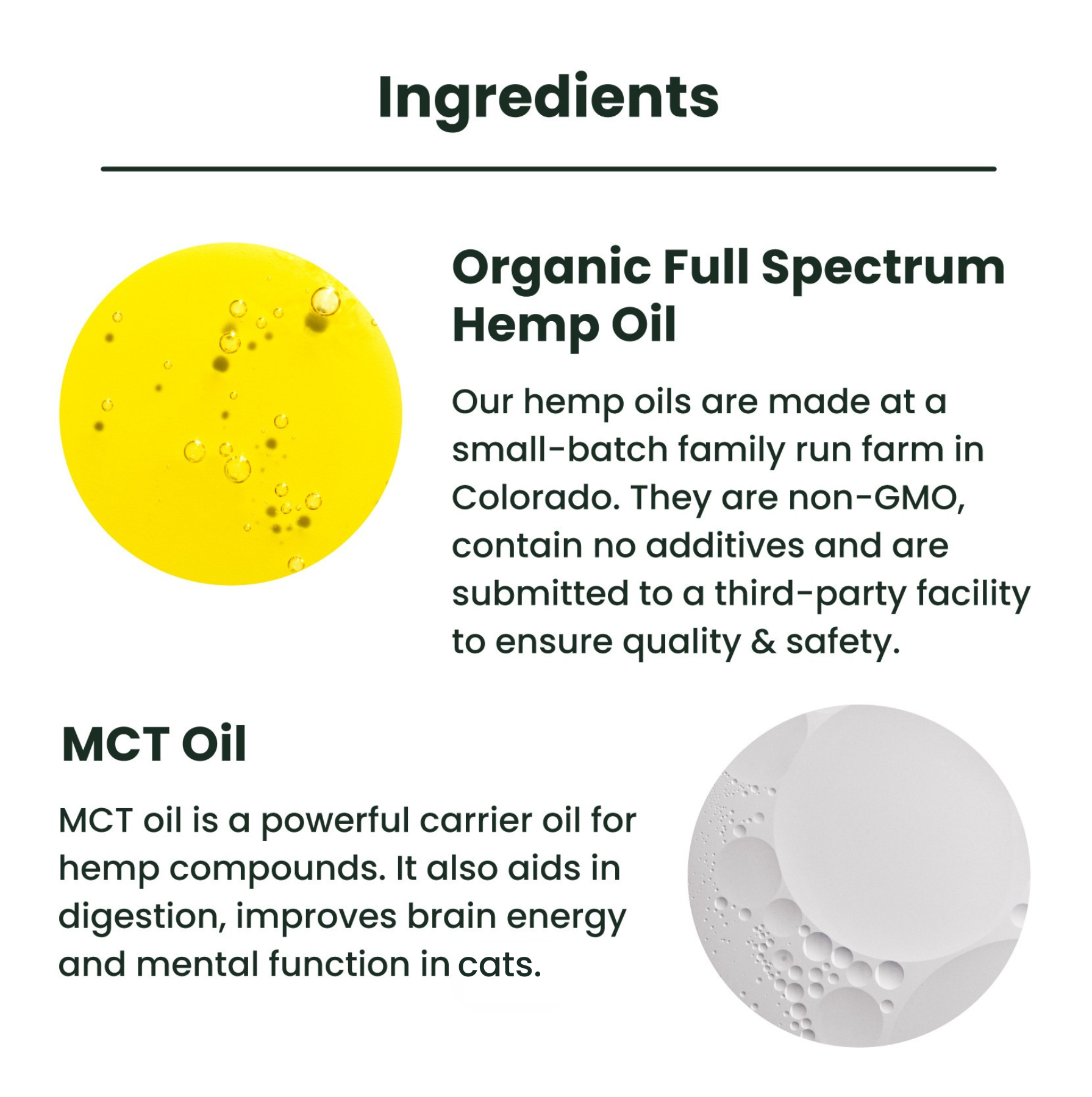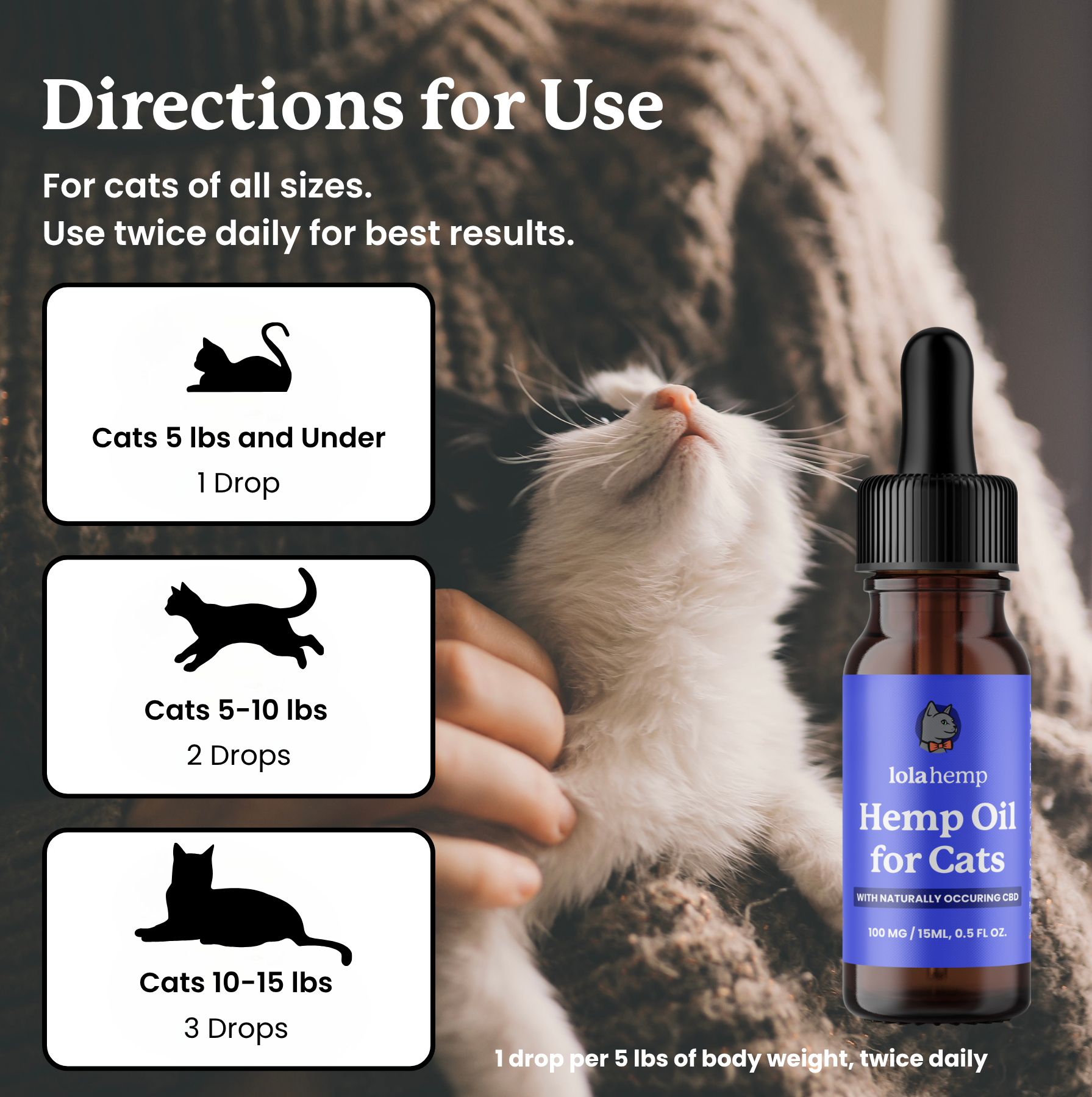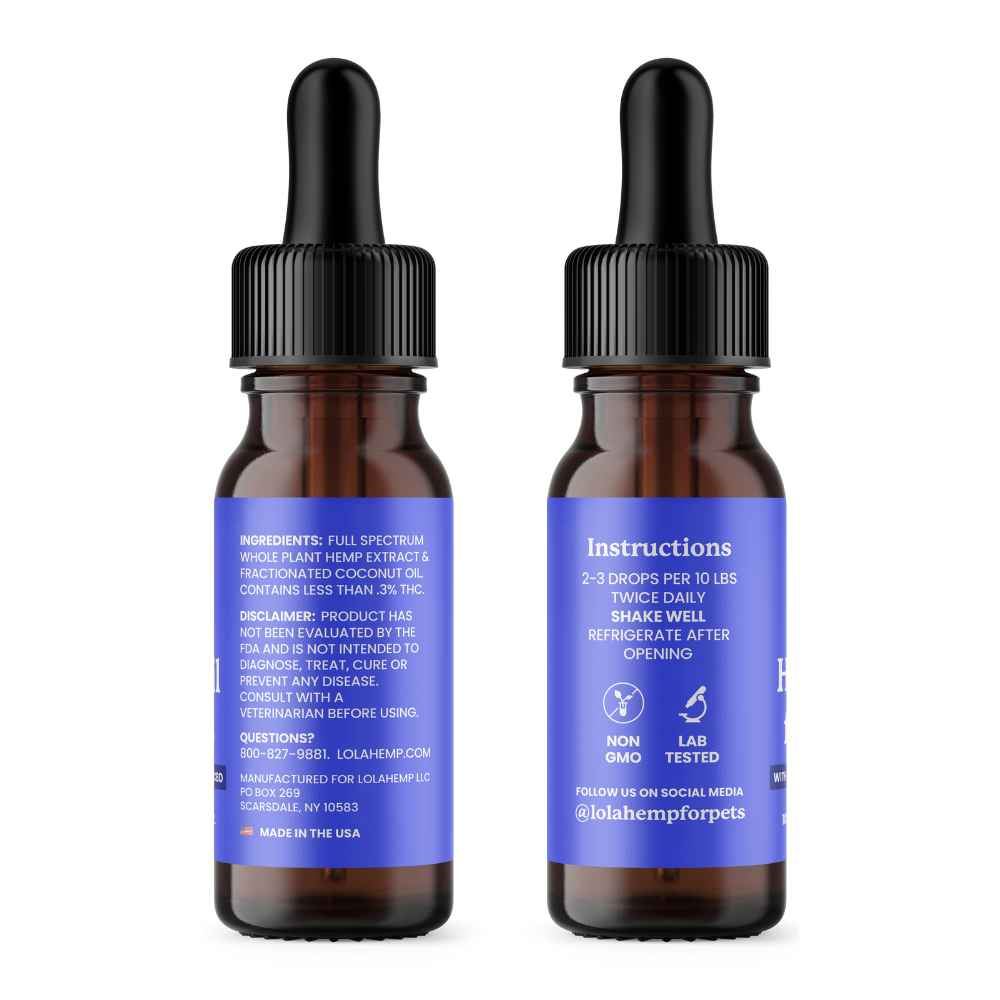There are a lot of important to questions to ask if you're a cat owner considering natural wellness options. For example, is hemp oil good for cats? Are other essential oils safe for me to use in an effort to help my feline friend?
It's important, and it can be overwhelming. The article below covers most of the information that cat owners commonly ask about using essential oils around their cats.
Note that essential oils aren't always safe for cats, and they can be dangerous. Our suggestion is to steer clear of most essential oils if you have cats in your home, and opt for safer options like hemp and CBD oil. That said, there are options for you to consider safely.
Let's take a look.

- Are Essential Oils Safe for Cats?
- 1. Tea Tree Oil is Unsafe for Cats
- 2. Sage Oil is Not Recommended for Cats
- 3. Peppermint Oil is Not Recommended for Cats
- 4. Spearmint Can Be Beneficial, But It's Risky
- 5. Clove Is Harmful for Cats
- 6. Eucalyptus is Dangerous to Cats
- 7. Rosemary Can Cause A Variety of Issues in Cats
- 8. Sweet Orange Oil Can Be Beneficial When Used Correctly
- 9. Lemongrass Contains Compounds Toxic to Cats
- 10. Cats Can Have Sunflower Oil
- Are There Essential Oils That Deter Cats and Are Safe for Them?
- Is It Safe if I Diffuse Essential Oils Near My Cats?
- Frequently Asked Questions About Essential Oils for Cats
- Are any essential oils safe to use around cats?
- Why are essential oils dangerous for cats?
- Can I diffuse essential oils if my cat is in the house?
- What should I do if my cat accidentally ingests essential oils?
- Are there safer alternatives to essential oils for cats?
- Can essential oils be used to deter cats from certain areas?
Are Essential Oils Safe for Cats?
In general, you should always assume that essential oils are unsafe for cats unless you research the specific oil you're considering bringing into your home.
Many essential oils, especially therapeutic grade essential oils are unsafe for cats because they're so concentrated. Pure essential oils are often undiluted and very strong, making it nearly impossible for your cat's liver enzymes to break the compounds down effectively.
What Happens When My Cat Swallows Essential Oils?
If a cat swallows essential oils, it can lead to serious health issues. Many essential oils are toxic to cats and can cause symptoms like vomiting, diarrhea, and even liver failure. Common dangerous essential oils include pennyroyal oil and tea tree oil. Pet parents should be cautious with concentrated essential oils and ensure they are stored out of reach to prevent accidental ingestion.
Are Diffusers Bad for Cats?
When cats are exposed to essential oil diffusers, they may experience respiratory distress or skin irritation. Essential oils like eucalyptus and lavender can be irritating to a cat's delicate respiratory system. While certain essential oils are safe when used properly, it’s essential to ensure that the area is well ventilated and that the oils are diluted appropriately.
What Happens to My Cat When I Burn Candles?
Burning candles that contain essential oils can release harmful compounds into the air. Cats exposed to these fumes might experience difficulty breathing or other adverse reactions. To keep your feline friends safe, consider using unscented candles or those made with oils safe for cats. Always ensure that your home is well ventilated when burning any products that emit fragrances.

1. Tea Tree Oil is Unsafe for Cats
Tea tree oil is not safe for cats and is considered one of the most dangerous essential oils. It can lead to essential oil poisoning, causing symptoms like lethargy and muscle tremors. Always avoid using tea tree oil on or around your cats.
Tea Tree Oil is Considered the Most Dangerous Essential Oil to Cats
The most dangerous essential oil for cats is tea tree oil. Even small amounts can be toxic and lead to severe health issues, including essential oil poisoning.
Symptoms may include lethargy, tremors, vomiting, and difficulty breathing.
Other highly toxic oils include pennyroyal oil and wintergreen oil, which can also cause significant harm to feline health. It’s essential for pet parents to avoid using these oils in any form around cats to ensure their safety and well-being. Always consult with a veterinarian before introducing any new products into your cat's environment.

2. Sage Oil is Not Recommended for Cats
Sage essential oil is generally not recommended for cats. While it may have some health benefits for humans, it can cause adverse effects in felines, including gastrointestinal upset and skin irritation.
3. Peppermint Oil is Not Recommended for Cats
Peppermint oil should be used with caution and is generally not recommended. While it can help with minor digestive issues, concentrated peppermint oil can be irritating. Always dilute it before use, and monitor your cat for any adverse reactions. If you're not doing so under the guidance of a veterinarian, it's recommended that you avoid peppermint essential oil for your cat.
4. Spearmint Can Be Beneficial, But It's Risky
Spearmint essential oil is often praised for its refreshing scent and potential benefits. However, when it comes to our feline friends, caution is key. Cats metabolize substances differently than humans, and many essential oils can be toxic to them.
Understanding the Risks
While spearmint is generally considered less harmful than other essential oils, it’s still important to be aware of the potential risks. Cats may experience adverse reactions, including:
- Skin Irritation: Direct contact can lead to rashes or irritation.
- Respiratory Issues: Inhalation of essential oils can cause difficulty breathing.
- Gastrointestinal Distress: Ingesting even small amounts can result in vomiting or diarrhea.
Safe Alternatives
If you’re looking for a minty scent that’s safer for cats, consider using fresh spearmint leaves or cat-safe herbal alternatives. Always consult with your veterinarian before introducing any new substances into your home, especially if you have pets.
5. Clove Is Harmful for Cats
Clove and clove oil can be harmful to cats for several reasons:
- Toxic Compounds: Clove contains eugenol, which can be toxic to cats and may lead to liver damage if ingested in significant amounts.
- Gastrointestinal Issues: Cats that ingest clove may experience vomiting, diarrhea, or stomach upset.
- Skin Irritation: Direct contact with clove oil can cause skin irritation or allergic reactions.
Signs of Toxicity
- Vomiting
- Diarrhea
- Lethargy
- Signs of pain or discomfort
6. Eucalyptus is Dangerous to Cats
Eucalyptus oil can be toxic to cats. Here are some potential risks associated with its use:
- Toxic Compounds: Eucalyptus contains compounds that can cause adverse reactions in cats, including lethargy, vomiting, and diarrhea.
- Respiratory Distress: Inhaling eucalyptus oil can lead to breathing difficulties.
- Skin Irritation: Direct contact can cause skin irritation or allergic reactions.
7. Rosemary Can Cause A Variety of Issues in Cats
While rosemary oil is generally considered less toxic than some other essential oils, it can still pose risks to cats:
- Toxic Reactions: Some cats may experience gastrointestinal upset.
- Skin Irritation: Direct contact can cause irritation.
- Respiratory Issues: Inhaling essential oils can cause distress.
8. Sweet Orange Oil Can Be Beneficial When Used Correctly
Sweet orange oil is not recommended for cats due to the risk/reward ratio of its use. Its pleasant smell can help reduce distress, making it a good option for enhancing a cat's well-being if you're extremely careful about diluting it and do so with a veterinarian's guidance.
9. Lemongrass Contains Compounds Toxic to Cats
Lemongrass oil can be harmful to cats for several reasons:
- Toxic Compounds: Can cause gastrointestinal upset.
- Skin Irritation: Direct contact can cause allergic reactions.
- Respiratory Issues: Inhalation can result in distress.
10. Cats Can Have Sunflower Oil
Yes, cats can have sunflower oil in moderation, but not sunflower essential oil. Sunflower oil is rich in healthy fats and can provide some health benefits, such as supporting skin and coat health.
However, it should be used as a supplement rather than a primary source of nutrition. Always choose pure sunflower oil and ensure it is free from additives or seasonings.
Are There Essential Oils That Deter Cats and Are Safe for Them?
While many essential oils can be harmful to cats, there are a few that are generally considered safe and can help deter them from certain areas or behaviors. However, it’s crucial to use them cautiously and in moderation.
Citrus Oils (e.g., Lemon, Orange)
- Benefits: Cats typically dislike citrus scents.
- Usage: Use diluted citrus oils in a spray or diffuser.
Is It Safe if I Diffuse Essential Oils Near My Cats?
Diffusing essential oils near cats requires caution. While some essential oils can provide calming effects, many are toxic to felines.
If you choose to diffuse essential oils, opt for cat-safe essential oils like coconut oil, and ensure they are heavily diluted. Always keep the area well ventilated and monitor your cat for any signs of distress.
It’s best to limit diffusion to short periods and ensure your cat has a safe space to retreat if they feel uncomfortable.
Frequently Asked Questions About Essential Oils for Cats
Are any essential oils safe to use around cats?
Most essential oils are unsafe for cats due to their concentrated compounds, but some diluted, cat-safe options like coconut oil may be used cautiously. Always consult your veterinarian first.
Why are essential oils dangerous for cats?
Essential oils contain potent compounds that a cat’s liver cannot break down effectively, leading to toxicity, vomiting, diarrhea, respiratory distress, or liver failure.
Can I diffuse essential oils if my cat is in the house?
You can diffuse essential oils only with extreme caution. The area must be well ventilated, the oils must be heavily diluted, and your cat must have a way to leave the room.
What should I do if my cat accidentally ingests essential oils?
If your cat ingests essential oils, contact your veterinarian immediately. Essential oil ingestion can cause serious symptoms like vomiting, tremors, and liver failure.
Are there safer alternatives to essential oils for cats?
Yes. Oils containing plant extracts—such as hemp oil or sunflower oil—are typically safer than concentrated essential oils, as long as they are pure and used in moderation.
Can essential oils be used to deter cats from certain areas?
Some diluted citrus oils can safely deter cats from unwanted areas, but they must be heavily diluted and used carefully to avoid irritation.

